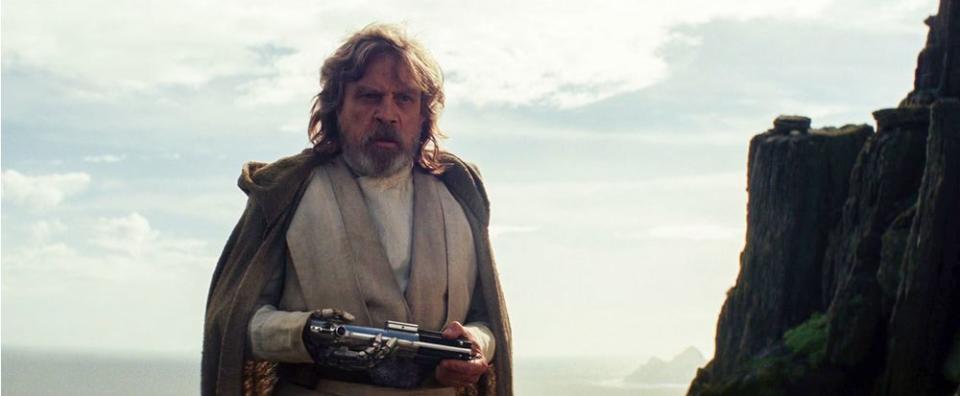Rian Johnson defends The Last Jedi as The Rise of Skywalker opens

As The Rise of Skywalker was opening in theaters on Thursday night, the director of The Last Jedi defended his version of Luke Skywalker.
Rian Johnson, who recently scored a critical and box office victory with his sleeper hit Knives Out, weighed in when a fan praised the new J.J. Abrams film at the expense of his Episode VIII.
“This is the best written explanation I’ve seen of how @rianjohnson completely destroys the character of #LukeSkywalker and almost derailed the franchise,” wrote one fan. “Thank goodness for @bad_robot coming in and cleaning up Johnson’s mess.” (Bad Robot is J.J. Abrams’ production company).

Replied Johnson: “Gil, I understand that point of view but I completely disagree with it. In fact I think it disrespects the character of Luke by treating him not as a true mythic hero overcoming recurring wounds & flaws, but as a video game character who has achieved a binary, permanent power-up.”
The critique of Luke’s portrayal the fan is referring too reads like a bit like a rant, accusing Johnson of not understanding Luke, who was presented as being a rather perfect embodiment of zen-like Jedi ideals in 1983’s Return of the Jedi. In Johnson’s film, the character is far more cynical decades later, particularly after experiencing a massive personal tragedy. It’s portrayal that was to some degree set up by Abrams’ The Force Awakens, which spoke of Luke’s deliberate isolation and ended with the haggard Jedi Master being none too pleased to see Rey showing up on his island.
It’s not clear if Johnson has seen The Rise of Skywalker; the director did not attend the Disney premiere. Last week Johnson said in an interview that in general that any “pandering” to Star Wars fans was “a mistake.” Some critics have accused The Rise of Skywalker as pandering to fans who disliked The Last Jedi. Early audience scores suggest fans are rating the film higher than critics.
Related content:
